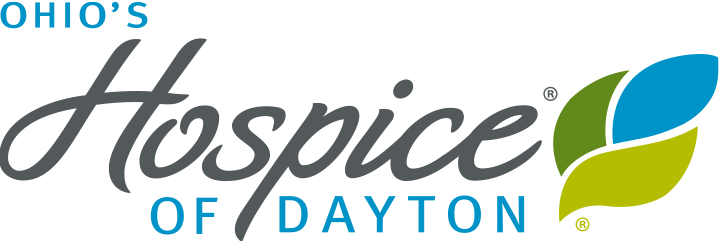Ohio’s Hospice of Dayton invites the community to remember and celebrate their loved ones at…

Dr. Jules Sherman Sets September Retirement
He has plans to stay busy in retirement. An Alaskan cruise. A visit to his brother in Florida. Fly fishing with his grandsons and many events with his family. As he faces retirement in September, Dr. Jules Sherman steps away from a career and organization that has consumed roughly 40 years of his life. He is well-satisfied and thankful for his opportunities and with the fruits of his labor.
As a young oncologist, Dr. Sherman attended a conference where Betty Schmoll was lecturing, the nurse who was the driving force in the creation of a new medical service in the Dayton area – hospice. Hospice care was a new concept and Dr. Sherman was a new physician with impressive knowledge about pain management as the result of his fellowship in cancer medicine. Betty invited him to lecture the six nurses dedicated to hospice home care. Dr. Sherman became involved as a volunteer and part of the grassroots movement to establish hospice services for Dayton.
He was part of the committee that walked the grounds on Wilmington Avenue and considered it as a possible site for a Hospice House. “We thought it was an ideal central location with all the trees and the two ponds,” he recalls. Once the Founders Building was constructed, he began seeing patients in the new facility. “We knew within months we needed more beds and thus the need for another building,” he says. A second capital campaign led to the expansion of the Hospice House facility, which became one of the largest inpatient hospice care centers in the country and a model for future hospices as the movement to better support end-of-life care spread across the nation.
Dr. Sherman was among the first group of physicians in the country to obtain certification as a hospice and palliative care physician in the mid-1990s. Most of the patients in early hospice care had a cancer diagnosis. “It took years for other specialists to begin to refer to hospice,” he remembers. Over time cardiologists, nephrologists, pulmonologists and others recognized the value of expert hospice support for patients facing end-of-life and began to refer patients as recognition of this new specialty grew.
Dr. Sherman cites Dr. James Ungerleider and Dr. Dale Hines as mentors who nurtured his involvement in hospice care. He also had the opportunity to study at Oxford University with Dr. Robert Twycross who served as the head of palliative care for the World Health Organization, which he called a great inspirational experience. He equally credits the nurses who commanded his respect by delivering outstanding bedside care. “Hospice care was one of the first to introduce an ‘extreme team’ approach to care,” he says. “By integrating other disciplines, we have fine-tuned our caregiving skills in hopes of providing the best care for our patients. I relied so much on the nurses, social workers, chaplains, aides and volunteers who share their insights and observations with me. Their perspective and dedication are so important to the delivery of quality care. Other healthcare providers have learned from and adopted the interdisciplinary approach pioneered by hospice.”
Hospice care is a career choice that is not for everyone, he says. “People are drawn to a hospice career by what I believe is a form of natural selection. It’s a calling of the heart and spirit. People who are dedicated to it attract others who become dedicated. It’s rewarding that we have a team whose prime interest is to provide emotional, spiritual and physical comfort in this transition from end-of-life to death. Every member of the caregiving team also learns from patients and families. We are an expanded family at hospice and I admire and trust them all.”
He envisions a future where palliative medicine will be fully integrated into all hospitals, and institutions that provide care to those with life-threatening illnesses, and is encouraged by the increasing numbers of nurses and doctors interested in hospice and palliative medicine. “There is still a real need, and every year we have medical students, residents, interns and fellows at Ohio’s Hospice of Dayton who find inspiration and professional challenge in this work. I can walk away knowing dedicated people here will continue to attract others who are just as devoted and enthusiastic, and patients will continue to receive exemplary care.”
Professionally, Dr. Sherman says he feels rewarded and proud to have been part of Ohio’s Hospice of Dayton from its beginnings and to see how it has evolved to become a major medical institution providing such needed care for our communities. On a personal level, Dr. Sherman says his experience “greatly elevated my appreciation for the sanctity of life and the preciousness and love of my wife, Ava, who has been my champion supporter throughout my career. It has magnified the joy I experience with my children and grandkids. I appreciate how extraordinarily lucky and blessed I’ve been to have them so close.”
Ohio’s Hospice of Dayton extends best wishes to Dr. Sherman in retirement and profound gratitude for the passion and expertise he contributed to the hospice mission.




This Post Has 0 Comments